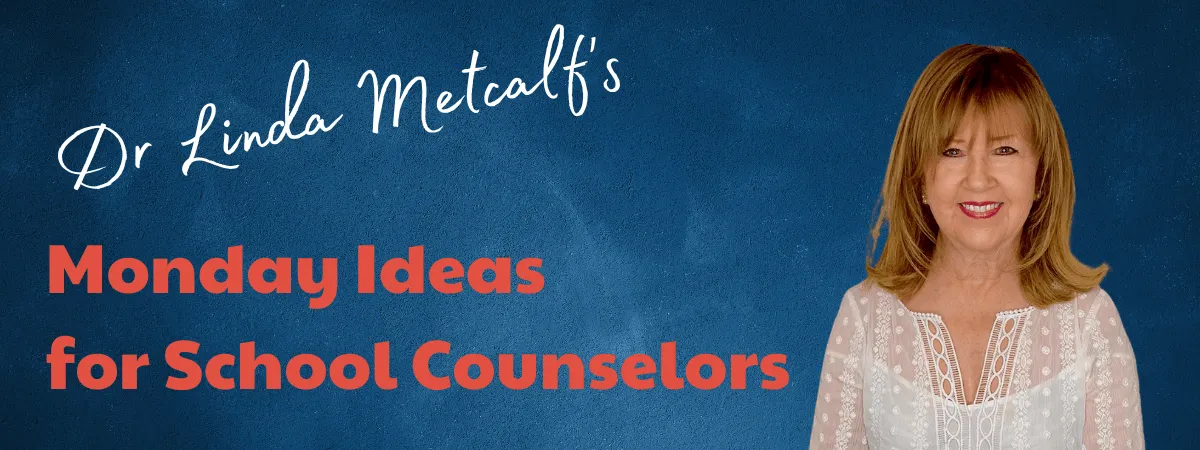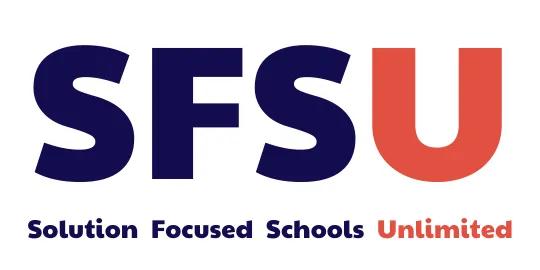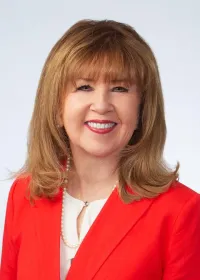
Monday Ideas for School Counselors
Weekly articles for school counselors with ideas on how to resolve typical school situations with students, teachers and parents using the solution focused approach.

End the School Year by Doing Less!
What difference would it make for YOU if you could do less for your students, just for the rest of the school year? What if I were to promise you that by doing so, it may help them to do more?
The skill of doing less is rather challenging to us help-oriented people, but it’s nearing the end of the school year and a lot is left to be done.
I even have a name for the skill. It is the do less skill.
The skill will require you to listen and refrain from helping or giving suggestions so your school clients feel heard. I like to use the scaling question to explain the power of this skill. Ask yourself the question below:
“On a scale of 1-10, with a 10 meaning the school client and I are determined to solve the dilemma and a 1, no one is trying. Where am I right now on this scale in regard to helping? Where is my school client in regard to helping himself?”
If your score is higher than the school client’s score, recognize that the two of you are out of balance. How do you get back into balance? You use the do less skill.
Student example:
The sophomore student is at your door, again, complaining about two classes that she is close to failing. She is terrified of not getting her makeup work done so she can become a junior. The other six classes are fine, high B’s. You have encouraged and sympathized, even suggested things, but she’s back again, saying she just wants your help to figure out how to pass. But instead, this time, you say:
“Sue, how have you managed to get the other six classes to high B’s? Tell me, how is it that you still come to talk to me about it? You obviously want to do your best. I have no idea how you keep trying! Wow. Please tell me how you have passed the other classes this semester?”
Sue’s answers then become the north star to find her expertise. Then, you only need to act incredibly impressed, take notes on her strategies in passing the other classes and use the scaling question:
“So, when you think of what you have done so far to pass the two classes, where are you currently on a scale of 1-10, with a 10 meaning you have passed? What else might you continue doing to move up the scale so you can pass?”
Teacher Example:
The teacher consistently complains about how hard the year has been. She is now wondering how she will ever get everything finished so she can get a break. You realize that even though it has been a tough year, she has made it to May.
“So, Ms. Franklin, this does sound overwhelming. I am really curious how you have handled everything so far this year? Tell me, how have you done it? You are quite amazing.”
“When you think of what you have done so far to get to this point, where are you currently on a scale of 1-10, with a 10 meaning you have handled it? What might you continue doing to move up the scale?”
Notice, in each of these scenarios, all that was done was to listen, ask where the client is on a scale of 1-10 to achieve what they want and then ask how they have arrived at that place on the scale so far. Even if it is a “1” it is not a zero. There is only one way, and that way is up.
NOTE: It’s not easy for school clients to look within themselves for answers, but that is where the best answers come from. Save your energy and be energized by the reactions you get!

Practical tools and strategies for school counselors to help students achieve their goals
Practical tools and strategies for school counselors to help students achieve their goals
© 2026 Solution Focused Schools Unlimited LLC


